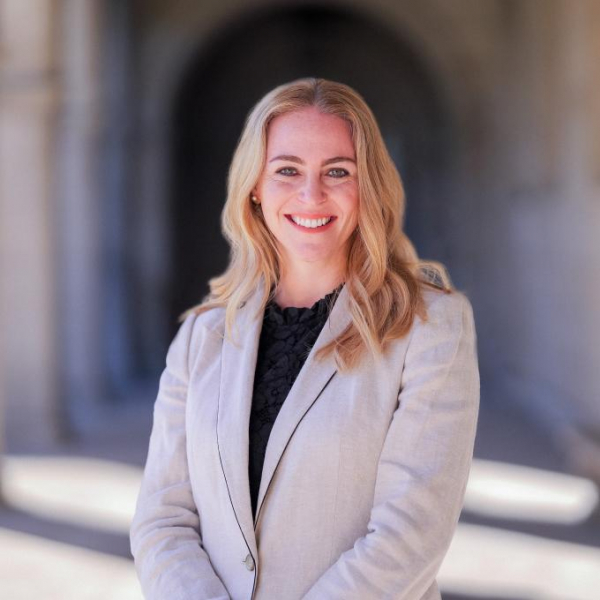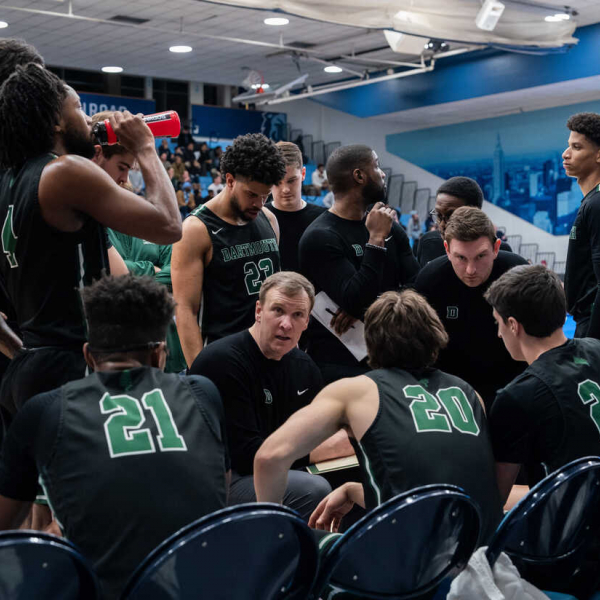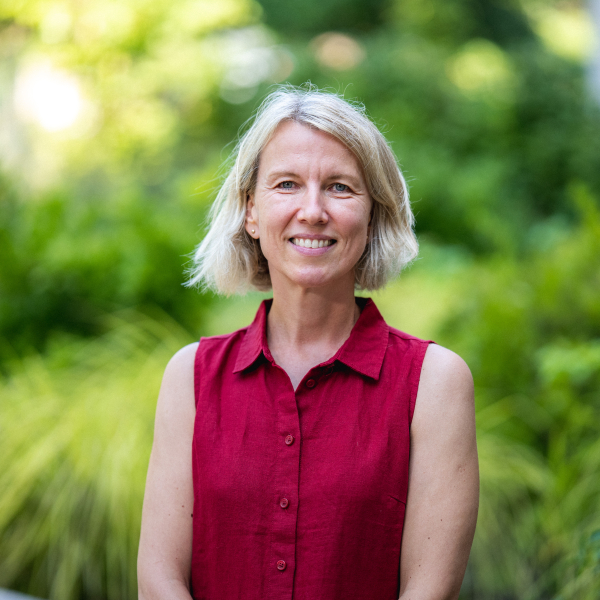The Mellon Mays Undergraduate Fellowship program supports original undergraduate research projects pertaining to identity, social justice, and diversity. This fall, Jonathan Fenderson will take the helm of the program.
In its nearly 30 years on campus, the Mellon Mays Undergraduate Fellowship (MMUF) program has made an indelible impact on the Washington University community, supporting countless students in their journeys to obtain doctoral degrees and pursue opportunities in academia. The program's presence was initiated by the late Dean James McLeod, who worked tirelessly to promote inclusivity and equity at Washington University. Now in its 29th year, the MMUF program continues to attract engaged scholar-activists who will contribute impactful research and build meaningful relationships with fellow scholars and faculty members alike.
Washington University MMUF is excited to welcome the newest cohort to its community. Beginning this fall, these undergraduate scholars will conduct original research in the humanities or humanitstic social sciences, with an emphasis on projects pertaining to identity, social justice, and diversity, with support from a faculty mentor throughout the two-year fellowship.
"I have always found it extremely rewarding to witness a student's intellectual growth; to be part of the process that helps a student turn a small spark of interest into a fully realized project, or possibly a career."
Wilmetta Toliver-Diallo, assistant dean in the College of Arts & Sciences and the MMUF program coordinator, notes the extensive and exciting interests of this year’s cohort of scholars, who were selected from a large applicant pool. “Some students will be doing literary and visual analysis, and others will be doing historical or sociological research. Exchange amongst our fellows is key in building scholars, so this range will enrich everyone in their MMUF experiences,” Toliver-Diallo said.
This year also marks the end of the four-year tenure of Rafia Zafar, professor of English, African and African American studies, and American culture studies, as the MMUF faculty director. She will be succeeded by Jonathan Fenderson, associate professor of African and African American studies. After working with MMUF scholars for a number of years, Zafar continues to be impressed and energized by the MMUF community and looks forward to watching it grow.
“Although I’ve taught for over 30 years, I have never regularly encountered such a wide-ranging set of scholarly interests in a single classroom; it’s been a treat and has kept me on my toes,” Zafar said. “Our incoming director, Professor Jonathan Fenderson, has the skills and dedication necessary to continue the Washington University MMUF legacy. I thank Dean Diallo and the College for their enthusiastic support these last four years.”
Fenderson will begin his role at the helm of the program this fall and looks forward to working closely with students throughout their journeys at Washington University and beyond. "I have always found it extremely rewarding to witness a student's intellectual growth; to be part of the process that helps a student turn a small spark of interest into a fully realized project, or possibly a career. Joining Washington University's MMUF program is an extraordinary opportunity to work in this capacity. I am honored to play a role in cultivating the next generation of scholars of color,” said Fenderson.
Meet the 29th cohort of MMUF fellows
Sarah Del Carmen Camacho
Majors: Global Studies, Educational Studies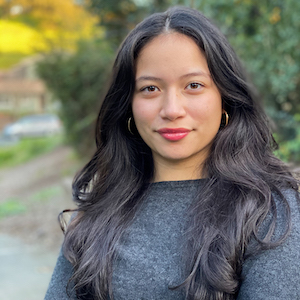
Minor: Chinese Language
Mentor: Michelle Purdy
Project Title: "Tracing Steps from Borders to Classrooms: A Study of Immigration in the United States"
Project Description: My project is a multi-layered exploration of the how, when, and why of immigration to the United States. My study of international policy and seminal sociopolitical events will reveal the forces behind waves of immigration to the U.S. Ethnographic research will help me understand the convergence of immigrants into communities and the cultural understandings around educational attainment. Finally, I will use the classroom as a looking glass to examine the instruction and resources that immigrant children receive at school while analyzing the parent, teacher, and student dynamics. With all of these components, I intend to deliver a more complete narrative about the immigrant experience in the U.S. within a larger international context.
Savannah Henderson
Major: Women, Gender, and Sexuality Studies; Sociology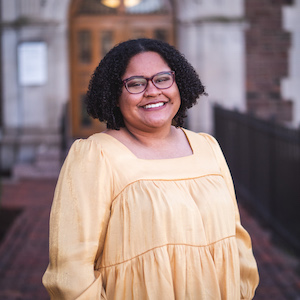
Mentor: Vetta Sanders-Thompson
Project Title: "At a Crossroads: How Black Women of Size Understand their Position at the Nexus of Racism, Sexism, and Sizeism"
Project Description: My project examines the intersections of racism, sexism, and sizeism for Black women of size in North County, St. Louis. In using a combination of historical and feminist analyses as well as an ethnographic approach, I will explore how Black women experience their personal and societal positionality at the intersections of the systemic oppression of race and gender in combination with societal sizeist expectations. I will explore how personal resource access influences their perceptions of their positionality, as well. The main goals of my project are to understand how resource access and media influence self-perception, how Black women in North County understand their positionality at the intersections of racism, sexism, and sizeism, and how it ultimately influences their self perception.
Olivia Kerr
Major: African and African American Studies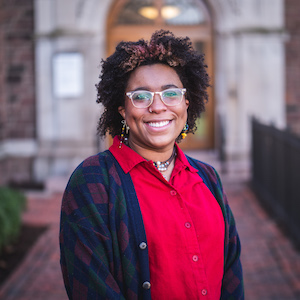
Mentor: Rebecca Wanzo
Project Title: "Boundless Black Feminism: How Black Women Inside and Outside of the Academy Assert Bodily Autonomy"
Project Description: The rich tradition of Black feminism finds its footing in the real-life experiences of Black women. Both Black women inside and outside of the academy are producing Black feminism through their respective mediums. How do academic and non-academic Black women express feeling and thought about their bodies? I intend to incorporate Black feminist theory and music videos by Black female artists from the 21st century into my research as I explore how Black women from these two distinct areas conceptualize and portray Black women's bodies. Through my project I hope to better understand the connection between academic and art as two entities that inform each other within the sphere of Black Women's Studies.
Marc Ridgell
Majors: African and African American Studies; Women, Gender, and Sexuality Studies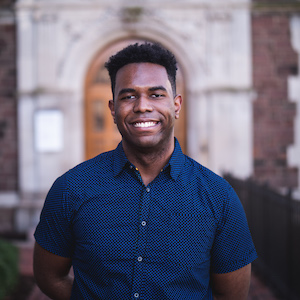
Minor: Sociology
Mentor: René Esparza, Andrea Friedman
Project Title: "After 'Take Back Boystown': Centering the Lives of Black Queer Youth"
Project Description: The 2011 “Take Back Boystown” (TBB) movement surveilled queer youth of color who frequented Boystown, Chicago’s “gayborhood,” to access social services at community organizations and to freely perform non-normative gender and sexual practices. My proposed project will engage with the lives of today’s Black queer youth who frequent Boystown, mapping which neighborhoods they are from and learning why they visit. Firstly, I will utilize demographic and historical analyses to understand how Black queers have performed their identity both in redlined urban enclaves and in gayborhoods like Boystown. Secondly, I plan to employ methods in urban sociology, specifically ethnography and in-depth interviews, to center contemporary Black queer youth experiences, as recent articles show that anti-black surveillance still occurs in Boystown. Thus, ten years after TBB, within a pandemic, makes this an exigent project to examine the nexus between geographic space, vulnerable Black queer subjects, and access to public assistance.
Ale Uriostegui
Majors: Latin American Studies, Spanish 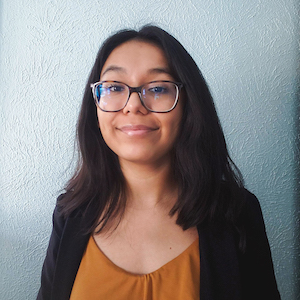
Minor: Educational Studies
Mentor: Ignacio Sánchez Prado
Project Title: “Approaching Historical Justice for the 1937 Parsley Massacre through Fictional Literary Novels”
Project Description: Also known as “El Corte,” the 1937 Parsley Massacre was an attack on Haitians under the ruling of former Dominican President Rafael Leonidas Trujillo, in which an estimated 20,000 Haitians were assassinated. I propose a comparative literary analysis of the massacre through four fictional novels: Jacques Stephen Alexis’s General Sun, My Brother (1955), René Philoctète’s Massacre River (1989), Edwidge Danticat’s The Farming of Bones (1998), and Freddy Prestoll Castillo’s You Can Cross the Massacre on Foot (2019). This project hopes to explore the tensions within and between personal stories in fictional literature as a larger demand for historical justice. I aim to analyze the temporal, social, and racial differences of the respective authors through their literary behaviors. While these nuances will be regarded, I strive to unearth the implications that subvert and supersede the imposed geographical limitations of Haiti and the Dominican Republic.

